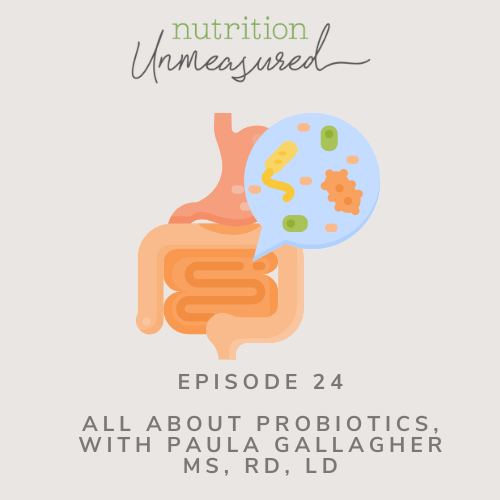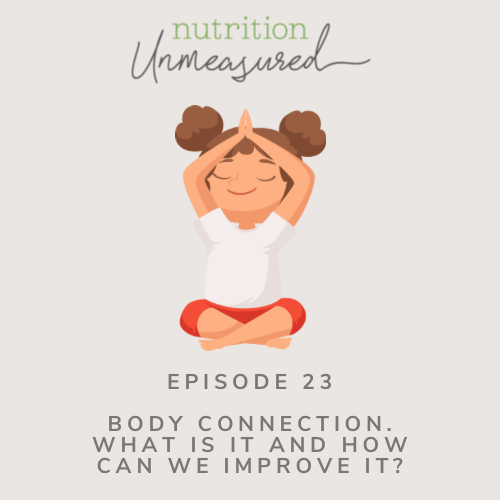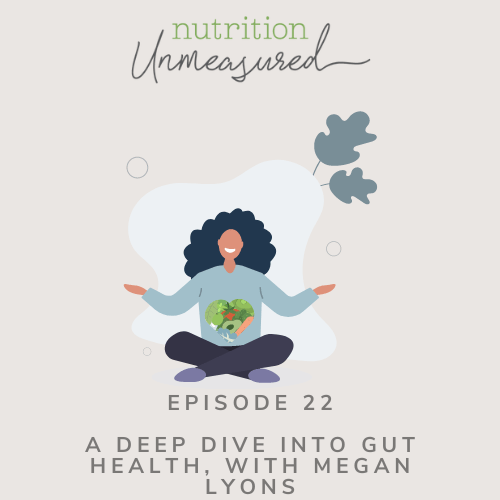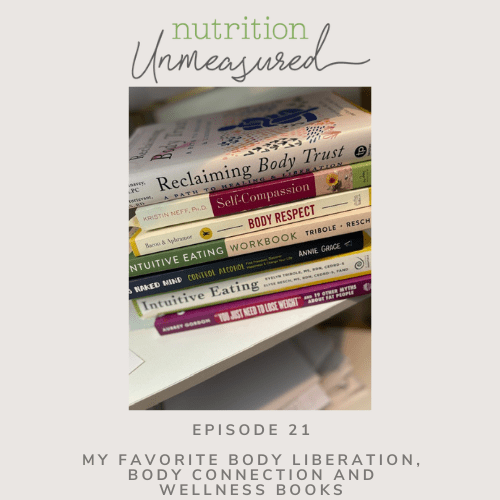Years ago I avoided FODMAPs because of my Irritable Bowel Syndrome (IBS). I had some form of mild IBS as a child, but it worsened in direct correlation to my diminished relationship with food. At a certain point my IBS was so bad that I decided to find a diet to help. Eating low FODMAP was helpful at first; my IBS symptoms subsided, but I also secretly loved the excuse not to eat several foods that I still deemed “bad” in my mind. For example, pasta is supposed to be eaten in moderation on the low FODMAP diet, and most foods have to be avoided because of the presence of garlic and/or onion. The whole idea with this diet is that it’s meant to be short term, and then you slowly reintroduce foods back to your diet as you learn you can tolerate them. That was never my plan. I took it to the extreme, and the diet ended up being more harmful for me than helpful. As it turned out, the best thing I did for my IBS was improve my relationship with food and my body through Intuitive Eating.
As I’ve begun doing Intuitive Eating coaching I have noticed many of my clients indicate they have symptoms of IBS or GI distress, and because of those symptoms they avoid certain foods. When clients tell me they avoid certain foods because of IBS or general GI upset, there are some things I want them to consider.
Questions I Often Ask
- Might these foods cause GI distress because you don’t eat them often? For example, if high fat foods cause GI distress, could it be that you just don’t eat much that is high in fat, so your body isn’t used to it?
- Have you mastered honoring your hunger and feeling your fullness? Before getting to the point where you are listening to your body cues related to hunger and fullness, you may eat certain foods past comfort, which can certainly cause distressing GI symptoms.
- Are you nourishing yourself often enough? If you are going a long time between meals (more than 5 hours, for example) and then eating a large meal, this could cause GI upset, potentially. Eating more often, or simply adding some snacks in between, might help.
- Are you still, even subconsciously, demonizing this food? If certain foods always give you trouble, it may actually be that you can’t tolerate them (I want to make that clear). But, if it’s a food that you still consider “bad”, ask yourself how that effects your experience eating that food. If a food is still restricted, we are more likely to lose control over ourselves around the food, which may cause GI distress. Additionally, if we are restricting it often, and then eating a lot when we have it, our body simply may not be used to the food in such amounts, which may exacerbate symptoms.
I want to be clear that IBS is real, and it effects many people on a regular basis (about 10-15% of people in the US). I also want to be clear that for some people, certain foods cause GI upset regardless of their relationship with food. For me and many others, my eating disorder and years of dieting exacerbated my IBS symptoms. I found my IBS subsided only when I adopted an intuitive eating lifestyle, but that may not be the case for everyone. For me the low FODMAP diet was probably more harmful than helpful, but for others it can be a game changer.
Can you relate to any of the bullet points above? Reach out to me anytime to find out more about my Intuitive Eating and Wellness Coaching Program!




